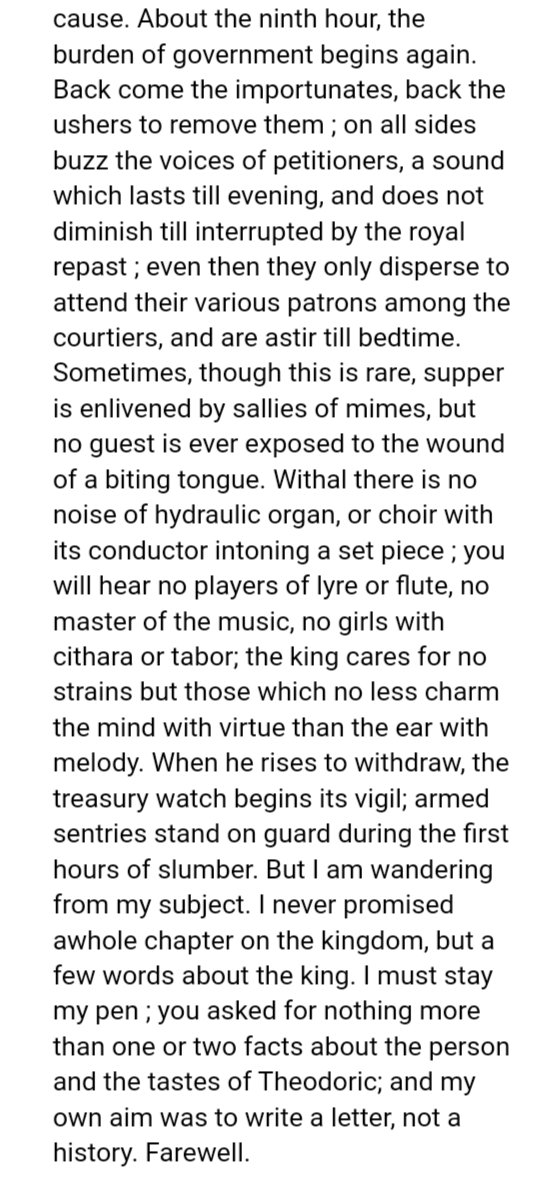
Gallo-Roman bishop Sidonius Apollinaris wrote a letter to his uncle describing his meeting with the Visigothic King Theodoric II, sometime in the 450s. Sidonius describes him as a temperate and Christian ruler, giving a picture of the life of a Post-Roman Germanic king. A thread: 

Before daybreak, the king prayed with a small group of priests, before devoting his mornings to the administration of his kingdom and meetings with foreign diplomats. 

He hunted for pleasure, a servant carrying his bow for him. Theodoric was such an expert archer that he would ask his companions what to shoot, never missing the target they selected. 

During meals, the king avoided drunkenness and ceremony, engaging in serious conversation with his nobles and guests. 

Theodoric enjoyed playing board games, probably similar to backgammon, and did so well. Although he was gracious in defeat, Sidonius mentions letting him win so the king would favor his petitions. 

He spent his evenings listening to petitioners. He disliked wild parties and loud music, preferring music which would "charm the ear with virtue." When he slept, guards watched the royal treasury throughout the night. 

• • •
Missing some Tweet in this thread? You can try to
force a refresh

















